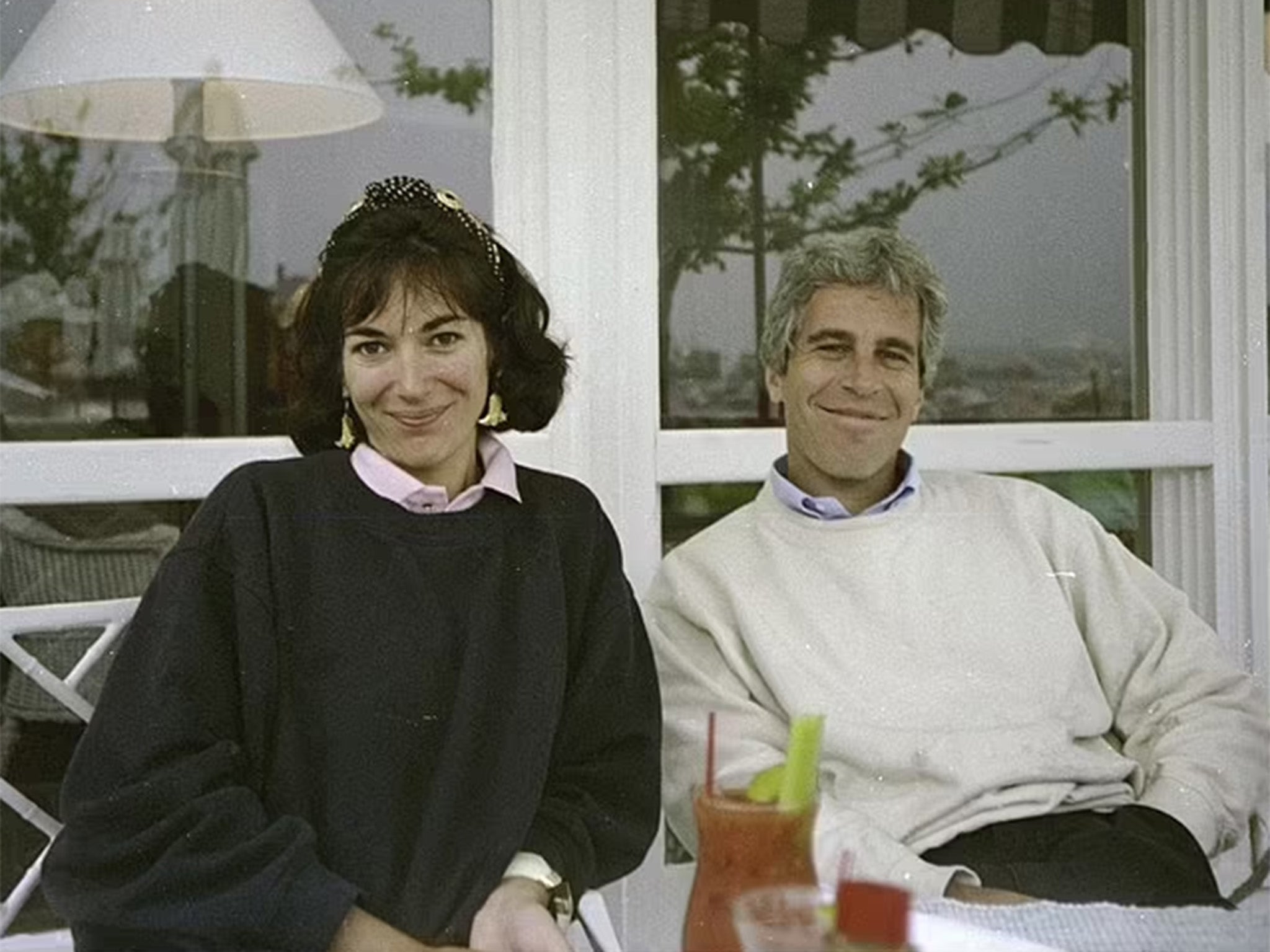Ghislaine Maxwell: Everything you need to know as socialite facing sentencing over sex trafficking conviction
Prosecutors asking for up to 55 years for child sex-trafficking convictions
British socialite Ghislaine Maxwell will be sentenced by a court in New York on Tuesday 28 June after being convicted of helping billionaire sex offender and financier Jeffrey Epstein abuse teenage girls.
Maxwell, 60, the youngest daughter of notorious media baron Robert Maxwell, was found guilty on 29 December by a federal jury on five charges, including sex trafficking, over the recruitment and grooming of four girls between 1994 and 2004 for sexual encounters with her former boyfriend Epstein.
The latter took his own life in jail in Manhattan on 10 August 2019, aged 66, while awaiting trial himself.
Federal prosecutors issued a sentencing memorandum on Wednesday in which they described Maxwell’s behaviour as “shockingly predatory” and advocated for her being sentenced to 30 to 55 years in prison for her crimes.
“Ghislaine Maxwell sexually exploited young girls for years. It is difficult to overstate the magnitude of her crimes and the harm she caused. Her crimes demand justice,” they wrote in the filing.
“The government urges the court to impose a sentence within the applicable guidelines range of 360 to 660 months’ imprisonment.
“Maxwell’s conduct was shockingly predatory. She was a calculating, sophisticated, and dangerous criminal who preyed on vulnerable young girls and groomed them for sexual abuse.
“Not only did her conduct exhibit a callous disregard for other human beings, but her practice of targeting vulnerable victims reflects her view that struggling young girls could be treated like disposable objects.”
In a letter to the court on Saturday, Maxwell’s attorney Bobbi Sternheim said she was placed on suicide watch despite not being suicidal.
Ms Sternheim said that she had been “abruptly removed” from the general prison population and denied access to toothpaste, soap, legal papers, and any clothes except a protective “suicide smock”, rendering her unable to review documents relating to her sentencing.

The US Probation Office has recommended a 20-year sentence but the prosecutors argue that does not take into account the cases of two additional women proven to be victims during her four-week trial just before Christmas, despite their not being named in the initial indictment against Maxwell.
In April, circuit judge Alison Nathan, who presided over the trial, rejected the defendant’s bid for an acquittal, but set aside guilty verdicts on two counts because they overlapped, reducing Maxwell’s maximum possible sentence from 65 years to 55.
In a statement, Annie Farmer, who testified at trial and spoke at Epstein’s bail hearing before he killed himself in August 2019 as he awaited a sex trafficking trial, said Maxwell’s lack of remorse and her repeated lies about victims forced “a long fight for justice that has felt like a black hole sucking in our precious time, energy and wellbeing.”
Ms Farmer has asked to speak at the sentencing. Maxwell’s attorneys have objected to a request from several other Epstein victims not connected to her trial, including British woman Sarah Ransome, from addressing the court.
On Friday, seven women who say Maxwell helped Epstein rob them off their youth wrote to the court asking for Judge Nathan to consider their pain during the sentencing.
Her defence lawyers have called for her to serve no more than five and a quarter years in prison, arguing, as they did throughout her trial, that she is being scapegoated in the wake of Epstein’s suicide and that she has already served a significant amount of time locked up at Brooklyn’s Metropolitan Detention Center.
“Going from being waited on hand and foot to incarceration is undoubtedly a shocking and unpleasant experience,” her legal team wrote, appealing for sympathy.
Maxwell’s siblings have also made a plea for leniency, pointing out the similarities between her close bond with Epstein and that she previously shared with her domineering father, who disappeared from the deck of his yacht, the Lady Ghislaine, in the Canary Islands in November 1991 and was subsequently found drowned.
“Her relationship with Epstein began at a moment of extreme vulnerability [in] Ghislaine’s life after the tragic death of our father,” her brothers and sisters wrote in a filing of their own.

“He, our father, was a powerful and dominant figure. And as elder siblings, we witnessed our father taking Ghislaine under his wing, whereby she became over-dependent on his approval and vulnerable to his frequent, rapid mood swings, huge rages and rejections. This led her to becoming very vulnerable to abusive and powerful men who would be able to take advantage of her innate good nature.
“It is striking that Ghislaine did not show any perverse behaviour before she met Epstein. Nor did she show any after leaving him, which she eventually managed to do. The effect of our father’s psychologically abusive treatment of her, foreshadowed Epstein’s own ability to exploit, manipulate and control her.
“She had a difficult, traumatic childhood with an overbearing, narcissistic and demanding father. It made her vulnerable to Epstein, whom she met right after her father’s death. It is the biggest mistake she made in her life and one that she has not and never will repeat.”
How long Ghislaine Maxwell will ultimately face behind bars will be decided by Judge Nathan next week.
At her trial in December, four accusers offered emotional and explicit testimony declaring that Maxwell was a central figure at the heart of Epstein’s web of vice, which saw him abuse numerous underage girls at his New York townhouse, Florida mansion, New Mexico ranch and on his private island of Little St James in the US Virgin Islands from the early 1990s to the late 2000s.
Additional reporting by agencies



Bookmark popover
Removed from bookmarks